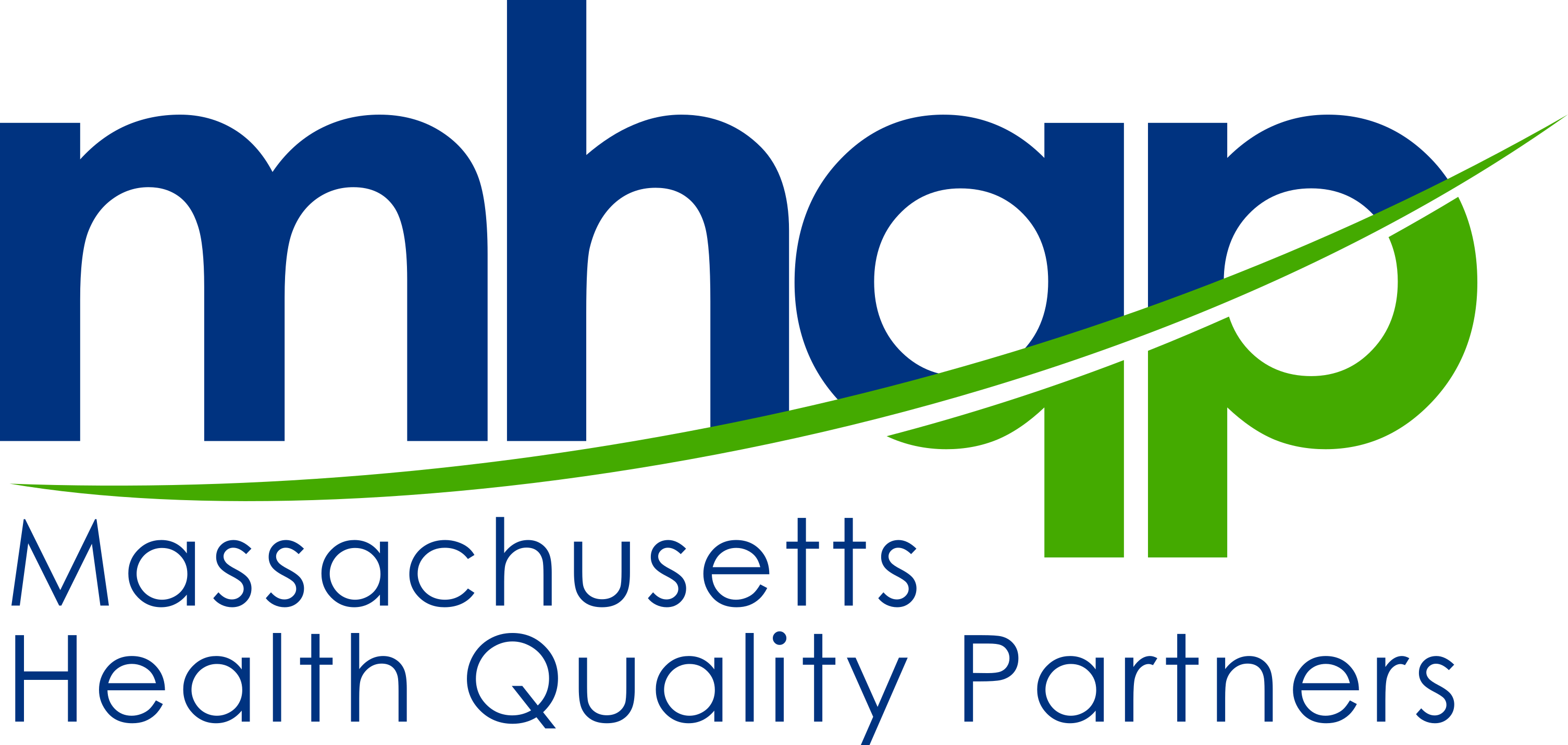MHQP Convenes Expert Panel to Tackle Patient Barriers to Healthcare Affordability
(December 2018)
“We have created barriers that routinely prevent patients from engaging with our healthcare system in a way that enables them to obtain high value, affordable care.”
This is how MHQP President and CEO characterized the nature of the problem at the start of MHQP’s Patient Engagement Roundtable Discussion on Affordability in December 2018.

MHQP convened a distinguished group of 24 representatives (see list) from key stakeholder groups in Massachusetts healthcare, including patient advocates, health plan representatives, providers, researchers and healthcare innovators. The purpose of the meeting was to consider how we as a community might improve affordability by enhancing patient engagement and promoting a better understanding of consumers’ perspectives on the issue.
The meeting was supported by Robert Wood Johnson Foundation and the Network for Regional Healthcare Improvement (NHRI), which supported similar affordability meetings throughout the country convened by regional health improvement collaboratives. MHQP’s meeting was unique in that it was the only one focused on the role patients can play in improving affordability.
“Far too often, we forget to include patients in discussions about how to solve healthcare’s most stubborn problems,” said Rabson. “How can we possibly seek to find system-level solutions without hearing from the people the system is designed to serve?”
Premise for the Work
The Roundtable’s work was based on the premise that engaging patients in their care can improve the decisions they make that impact quality and affordability. This issue was of great concern to all participants, as evidenced by the following poignant quotes from the day:
“Lots of blame is placed on patients for not having the literacy needed to navigate the system, but we make the system unnecessarily complicated.” – Leigh Simmons, MD, Medical Director, MGH Health Decisions Science Center, Massachusetts General Hospital
“Patients have no clue about the decisions they have to make when they sign up for a plan.” – Melissa Gopnik, MBA, Senior Vice President, Commonwealth
“It’s daunting, especially for immigrants. I spent two hours trying to enroll my mom in a Part D plan on Medicare.gov – and I work in this space.” – Lucilia Prates, Director, MA Senior Medicare Patrol Program and the new Chair of MHQP’s Consumer Health Council
“We need to acknowledge the power imbalance – the patient has no voice in the system and we need to change that. Consumer engagement is an important strategy to address affordability.” – Qi Zhou, Vice President, Performance Analytics and Quality Oversight, Blue Cross Blue Shield of Massachusetts
“There are risks of having patients practice cost control without having a dialogue between providers, social workers and patients about the “right” way to ration.” – Meredith Rosenthal, PhD, C. Boyden Gray Professor of Health Economics and Policy, Harvard T.H. Chan School of Public Health
“Trust between patient and provider is essential, but it is lost in complexity of the system.” – Howard Beckman, MD, FACP, FACH, Senior Consultant, Common Ground Health
Another important context for this discussion were Massachusetts’ efforts to address affordability at a policy level, having successfully implemented and led the nation on universal access.
Barriers to Engagement
With these issues as backdrop, the group identified five categories of barriers that suppress patient engagement and thereby prevent patients from getting high value affordable healthcare:
- Trust – Healthcare is built on relationships and relationships are built on trust. A trusting relationship between patients and providers improves outcomes and healthy behaviors. The current healthcare system makes it challenging for stakeholders to build strong productive relationships.
- Health Literacy – The vast complexities built into our healthcare system have made it very difficult for consumers to be knowledgeable about their medical conditions, how to best navigate the healthcare system, their health benefits eligibility and coverage, and how to find the best value providers in their area.
- Capacity – System complexity and care fragmentation place an enormous burden on consumer capacity. Many patients are unable to balance competing priorities to make sound and sensible healthcare decisions. Others are limited by lack of energy, time and/or resources to effectively engage with providers or the healthcare system.
- Access – Too often, patients struggle to gain appropriate and reliable access to the healthcare system, providers, choice of treatments, generic drugs and information. Many factors can restrict effective entry or use of the system, all of which directly hinder patient engagement.
- Transparency – The information patients need to make effective healthcare decisions is not available in a reliable or easily understood manner. This information should include data about cost, quality, efficiency and consumer experience, so as to influence the behavior of patients, providers, payers, and others to achieve better outcomes.
How This Plays Out
MHQP created a conceptual framework based on the literature that shows how these five barriers prevent patients from establishing effective working alliances with their providers, engaging in self-management, and developing shared decision-making skills that lead to wise healthcare choices. These barriers play out in a variety of dysfunctional scenarios between patients and the healthcare system. Here are some examples:
| Lack of… | Leads to… |
|---|---|
| Trust |
|
| Health Literacy |
|
| Capacity |
|
| Access |
|
| Transparency |
|
Seeking Solutions
 “This problem is analogous to the recycling challenge in our society,” said Alain Chaoui, MD, President of the Massachusetts Medical Society. “How do we get everyone involved to do their part to reduce the cost of care?”
“This problem is analogous to the recycling challenge in our society,” said Alain Chaoui, MD, President of the Massachusetts Medical Society. “How do we get everyone involved to do their part to reduce the cost of care?”
With each participant offering a unique and valuable perspective on the problem, the group identified a deep and innovative list of potential ways to address the barriers. These potential solutions were boiled down to four categories, each with specific areas of focus:
1. Make it easier for patients and providers to understand health benefits
- Standardize communications across plans and providers to reduce complexity.
- Create training/tools for patients to better understand their healthcare benefits.
2. Better inform patients and providers about healthcare costs
- Promote uniform public service messaging and educational materials across multiple channels.
- Create training/tools for providers and care teams around communicating with patients about costs/care decisions.
3. Increase patient engagement in healthcare decision-making
- Offer healthcare beyond office visits to increase access to care without destabilizing primary care.
- Measure patient engagement to drive improvements.
4. Expand healthcare beyond individual office visits
- Offer healthcare beyond office visits to increase access to care without destabilizing primary care.
- Expand availability of community venues with a focus on vulnerable populations.
What Comes Next
MHQP is extremely grateful to all Roundtable participants for their time and commitment to these important ideas.
One specific action step coming out of this effort is that MHQP has been named a strategic partner in the Massachusetts Employer Healthcare Coalition (MEHC), an employer-led effort aimed at reducing health care costs by reducing unnecessary use of emergency departments.
Beyond that, we are continuing to process this material with MHQP’s Board and Councils and will be identifying specific proposals for advancing the work forward. We invite you to stay tuned and welcome your feedback and suggestions on this important initiative.
